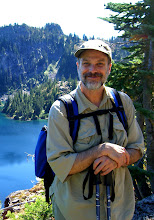George
= = = = =
Dear Community,
Today I am feeling the importance of community in the most poignant way. This afternoon I did some hospice work with someone in another city (not coming to KCC), who at the time of death, feels lacking in spiritual community. It's a case of not understanding that one had to build it before it was needed--because when one needs it most, it is too late to start building. Depending on the generosity of strangers is risky business. Your job, your wealth, your beautiful house and car---these things will not nurture you when you need it most. People will. Choose the emphasis in your life carefully.
Especially for our mid-to younger community members, I want to remind you, tenderly, that community is a jewel. A precious resource that one tends all one's life, in each stage, however one can. We never know when our personal and family needs will exceed our resources. A child or spouse or family member may fall ill and you may need help. You may lose your job and need food or shelter. You may feel despair and need comfort. Over and over you will need someone to listen. These and so many times, it is so wonderful to call out to your community for help. To the degree that you have invested in your community, they will respond.
Sometimes we hold the mistaken view that we should not burden our community with asking for help. I believe that this is not true. I think when we have given, we should ask. Receiving is an aspect of generosity practice. Even if we have not given, asking and receiving will inspire us to give--so even then it is beneficial.
Community is also such a fine platform for sharing the brighter spots in life. Your community shares in your accomplishments, your victories--even your mastery over the smallest bad habit. Human beings are meant to have this support. Sharing it heals and strengthens both the giver and the receiver.
KCC has faults and struggles like all human communities. But over and over I see and value what we do for each other. Sangha is indeed a refuge. If your challenges are deep enough, you will be glad to have even a pesky friend come to help you. :) And if we let it happen, even enemies can become friends in times of need.
I offer sincere gratitude for all of you who are supportive to each other. Buddhism certainly has no claim on kindness. All authentic spiritual traditions emphasize coming together in life's journey.
I gently encourage those of you who are not yet woven deeply into the fabric of the community to begin to work in that direction, however small. I assure you, you are welcome here.
Julia King Tamang
Associate Teacher, Kagyu Changchub Chuling
Dear Community,
Today I am feeling the importance of community in the most poignant way. This afternoon I did some hospice work with someone in another city (not coming to KCC), who at the time of death, feels lacking in spiritual community. It's a case of not understanding that one had to build it before it was needed--because when one needs it most, it is too late to start building. Depending on the generosity of strangers is risky business. Your job, your wealth, your beautiful house and car---these things will not nurture you when you need it most. People will. Choose the emphasis in your life carefully.
Especially for our mid-to younger community members, I want to remind you, tenderly, that community is a jewel. A precious resource that one tends all one's life, in each stage, however one can. We never know when our personal and family needs will exceed our resources. A child or spouse or family member may fall ill and you may need help. You may lose your job and need food or shelter. You may feel despair and need comfort. Over and over you will need someone to listen. These and so many times, it is so wonderful to call out to your community for help. To the degree that you have invested in your community, they will respond.
Sometimes we hold the mistaken view that we should not burden our community with asking for help. I believe that this is not true. I think when we have given, we should ask. Receiving is an aspect of generosity practice. Even if we have not given, asking and receiving will inspire us to give--so even then it is beneficial.
Community is also such a fine platform for sharing the brighter spots in life. Your community shares in your accomplishments, your victories--even your mastery over the smallest bad habit. Human beings are meant to have this support. Sharing it heals and strengthens both the giver and the receiver.
KCC has faults and struggles like all human communities. But over and over I see and value what we do for each other. Sangha is indeed a refuge. If your challenges are deep enough, you will be glad to have even a pesky friend come to help you. :) And if we let it happen, even enemies can become friends in times of need.
I offer sincere gratitude for all of you who are supportive to each other. Buddhism certainly has no claim on kindness. All authentic spiritual traditions emphasize coming together in life's journey.
I gently encourage those of you who are not yet woven deeply into the fabric of the community to begin to work in that direction, however small. I assure you, you are welcome here.
Julia King Tamang
Associate Teacher, Kagyu Changchub Chuling

